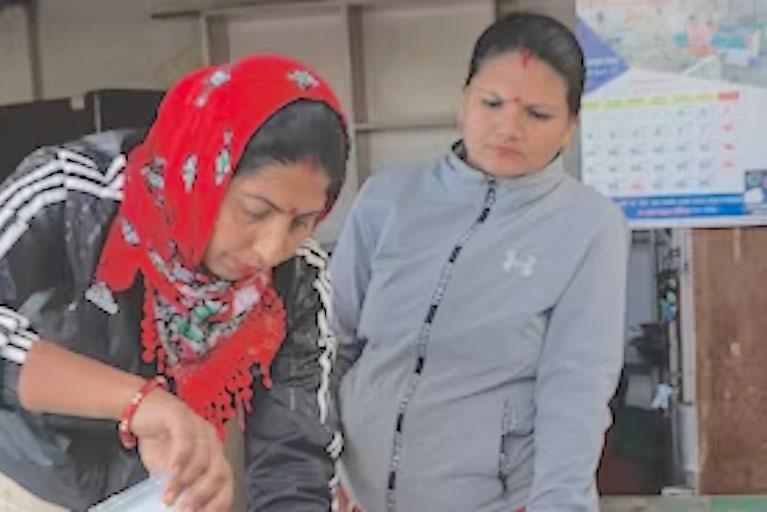
Sustainable Locally Led Development Fact Sheet
This fact sheet explains Heifer’s locally led development approach, defines sustainable locally led development, and discusses why this approach is important.
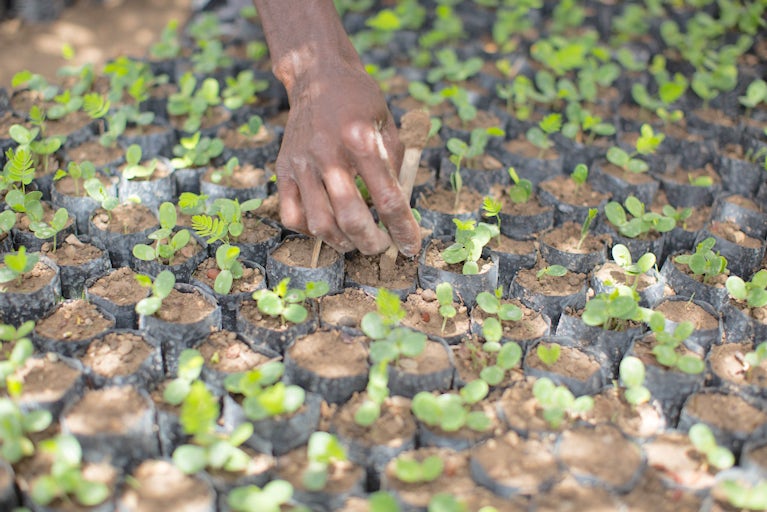

We support the people of Haiti to address food insecurity, climate shocks and fragility.

Hervil Cherubin, Senior Country Director
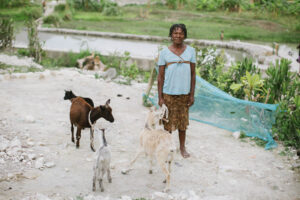
Haiti is located on the island of Hispaniola — which it shares with the Dominican Republic — between the Atlantic Ocean and the Caribbean Sea. It is the third-largest country in the Caribbean, after Cuba and the Dominican Republic.
The country is experiencing a humanitarian crisis as a result of historic and ongoing political, economic and climate shocks. Rising insecurity and poor harvests have led to persistent inflation and deepened fragility and vulnerability to malnutrition and disease. The formal food system has collapsed and nearly half the population does not have enough food to eat.
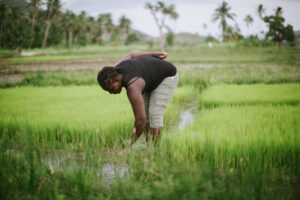
Within this challenging context, Heifer works with farmers and producers to cultivate their land and raise livestock as sustainably as possible so they can strive for a brighter future.
In response to the severity of the food security crisis and recognizing that agriculture is an increasingly vital lifeline for people in Haiti, Heifer’s work prioritizes crop and livestock production and community-led development that includes Passing on the Gift®, a commitment by participants to pass on knowledge or assets gained through Heifer programming. Through these focuses, support smallholder crop and livestock farmers to shore up resilience and create food systems to support Haiti’s most vulnerable groups.
Our primary objective is helping families achieve a sustainable living income, our measure for the amount of money required for a decent life — including safe shelter, nutritious food, clothing, education and health care — while also reaching additional benchmarks for economic and climate resilience.
Year Heifer launched in Haiti
Household participants in 2024
Household participants to date
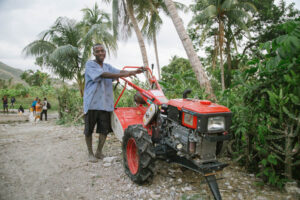
Heifer International’s work is organized at the country level into Signature Programs focused on a large-scale and measurable impact achieved by building partnerships at all levels. Each program supports farmers through time-bound projects designed to increase their household income.
Heifer’s Signature Program in Haiti, Haiti Resilience, seeks to address low productivity, the lack of knowledge of agricultural techniques and severely limited access to inputs. This work supplies farmers with tools and seeds, provides training to increase their productivity and income and supports access to markets where farmers can trade and earn an income.
Project timeline: 2022–2025
The Building Climate Resilience in Supply Chains for the Mobilization of Adaptation Funding project strengthens farmers’ resilience and adaptability to climate change. Heifer leads this initiative in collaboration with the Global Environment Facility (GEF), Conservation International and the Guatemalan Ministry of Environment and Natural Resources (MARN). A key component of this work is the creation of an Adaptation Equivalency Index (AEI) in Guatemala and Honduras. This index allows producers and farmers to capture the full value of their adaptation activities in the coffee, cocoa and spice value chains.
Project timeline: 2024–2032
The Enhanced Climate Resilience in the Trois-Rivières Region of Haiti through Integrated Flood Management project addresses environmental and climate challenges in northern Haiti. This eight-year initiative strengthens community resilience through sustainable flood management and ecosystem restoration in the Trois-Rivières watershed. Covering 33 communal sections in the Nord, Artibonite and Nord-Ouest departments, the project focuses on ecosystem-based flood management solutions, climate-resilient agricultural practices and improved governance for integrated water resources management.
Expected outcomes include reforestation of degraded landscapes, fortified capacity of local agencies and a significant reduction in households exposed to flood risk. This project promotes sustainable development practices that can be scaled and replicated nationally and throughout the Caribbean.
Project timeline: 2024–2029
The Strengthening the Economic and Agricultural Resilience at the Haiti-Dominican Republic Border (AgriFront) project, a cornerstone project of the Haiti Resilience Signature Program, aims to contribute to more resilient border communities with the Dominican Republic.
AgriFront aims to improve the economic and environmental resilience of Haiti’s border communities by enabling smallholder farmers to achieve a sustainable living income. AgriFront will reach this goal through increases in agriculture production and productivity; improvements to communities’ health, nutrition, and social capital; and enhanced market systems with better-engaged actors. This project is expected to achieve these results by developing systems that bolster markets and support social capital and human well-being.

This fact sheet explains Heifer’s locally led development approach, defines sustainable locally led development, and discusses why this approach is important.
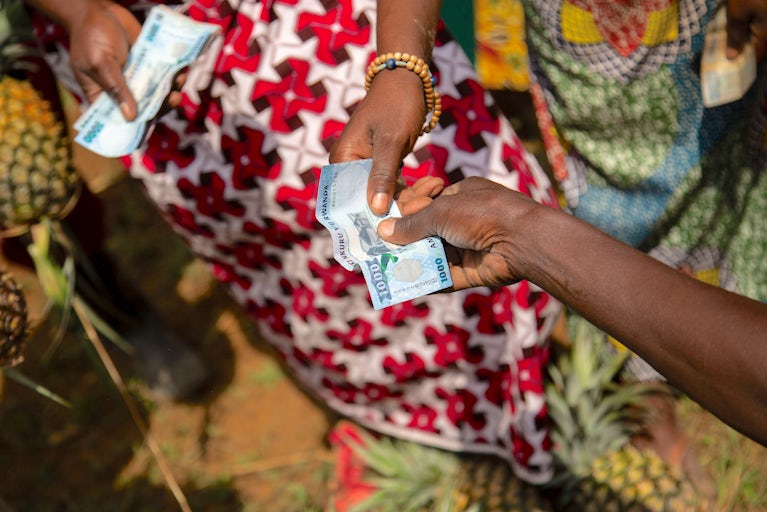
Heifer invests in infrastructure across our project areas to build strong market systems, giving farmers the purchasing power to keep nutritious food on the table and roofs above their heads.
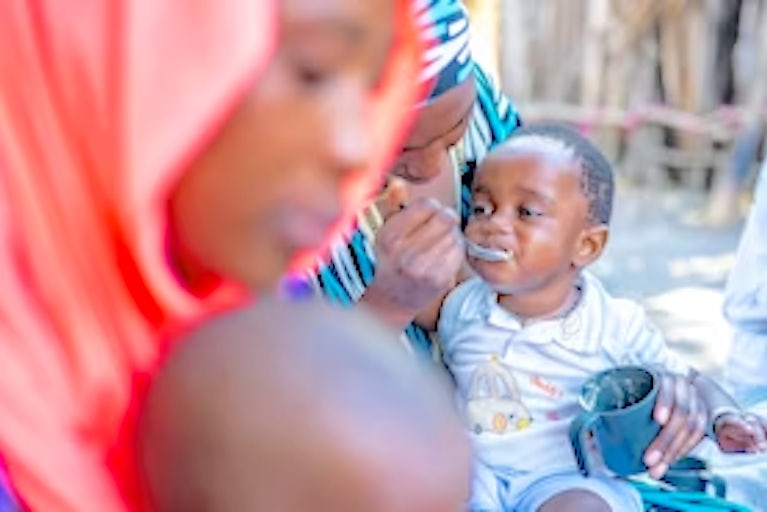
Untangle the complexities of global hunger and food insecurity, why they persist and how Heifer is making a difference.
Jean Emile Cima, Vetiver Forward Project Participant
Cart is empty
Success!
Please be patient while we send you to a confirmation page.
We are unable to process your request. Please try again, or view common solutions on our help page. You can also contact our Donor Services team at 855.9HUNGER (855.948.6437).
Covering the transaction fee helps offset processing and administrative fees that we incur through taking payments online. Covering the transaction fee for each payment helps offset processing and administrative fees that we incur through taking payments online. Covering the transaction fee for each payment helps offset processing and administrative fees that we incur through taking payments online.